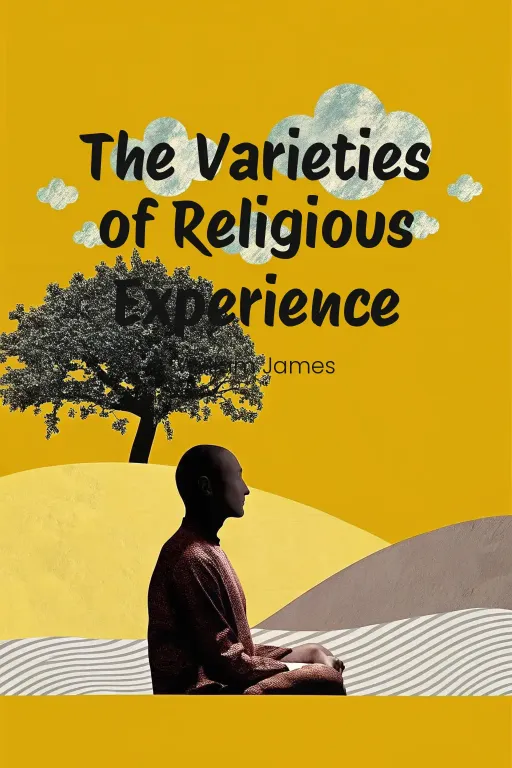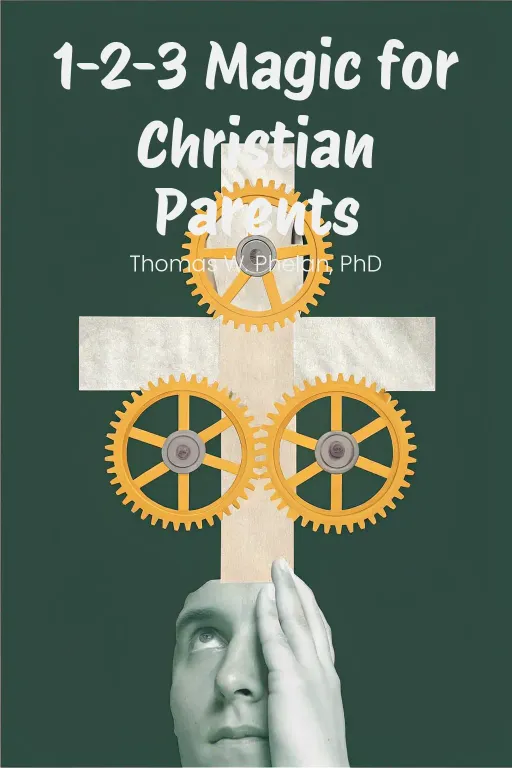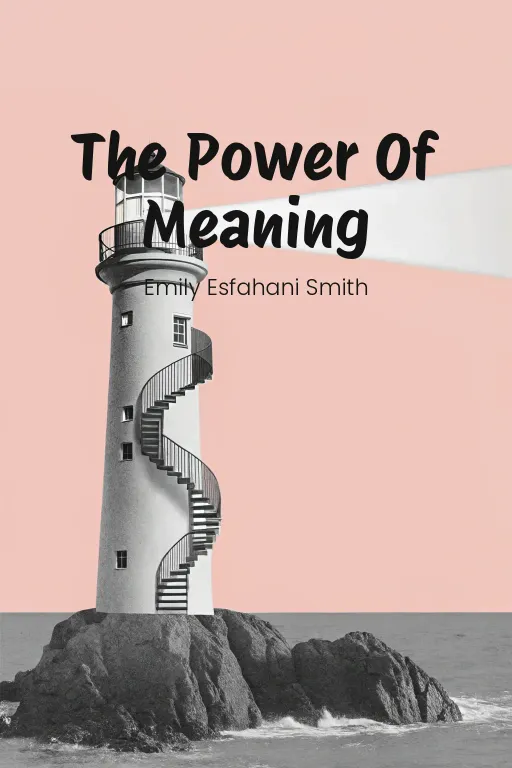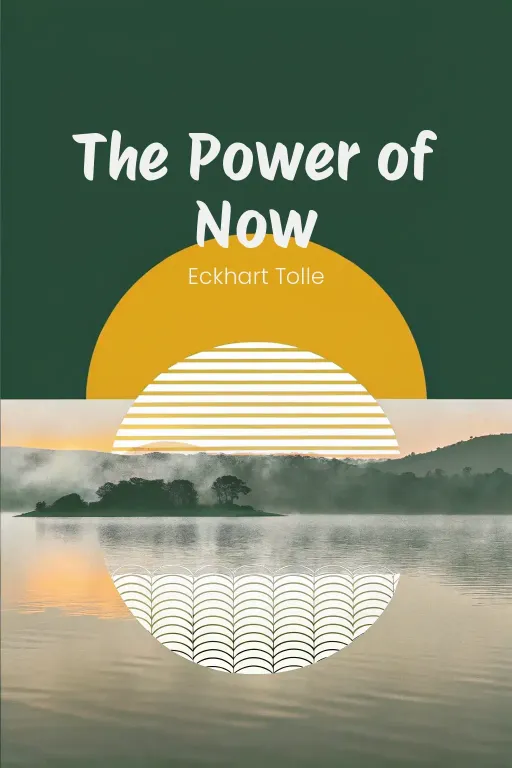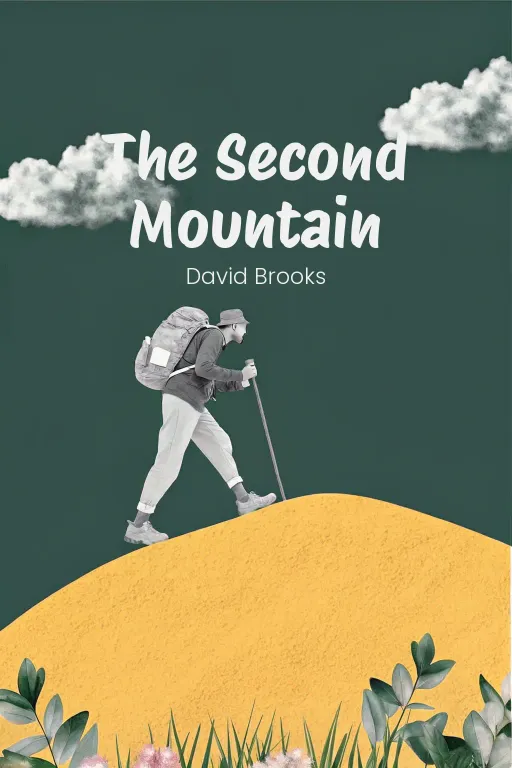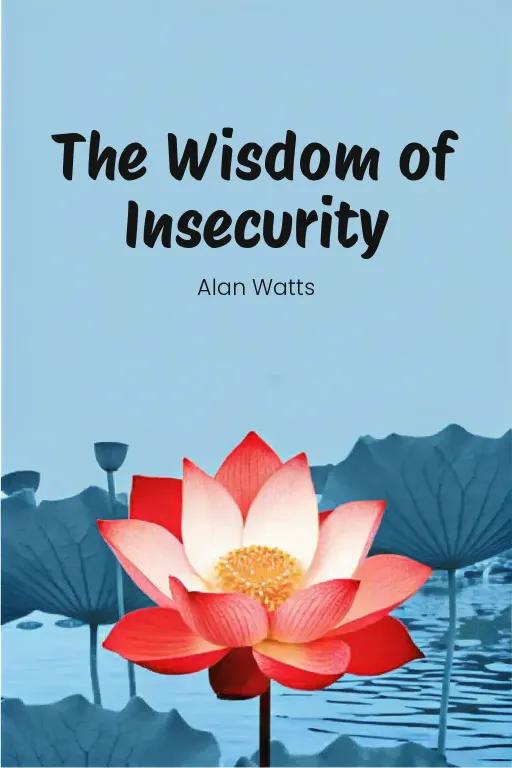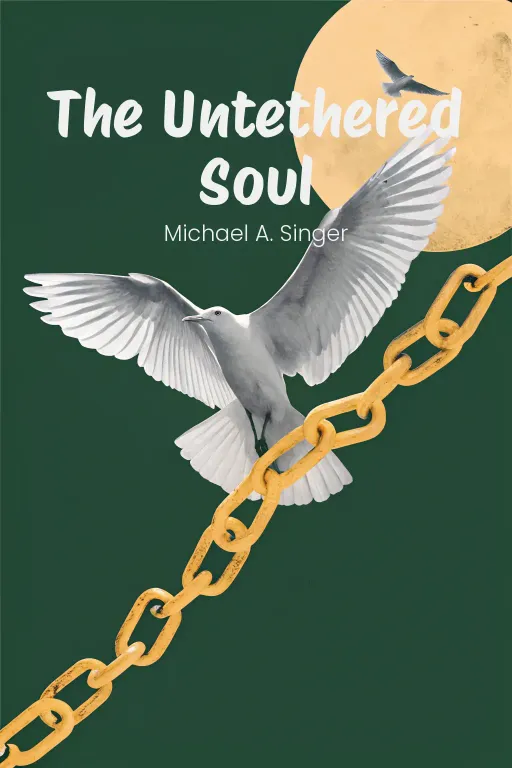
Soul Sparks: Find Your Meaning
Podcast by The Mindful Minute with Autumn and Rachel
Soul Sparks: Find Your Meaning
Part 1
Autumn: Hey everyone, welcome to the show! Today we're tackling something really interesting: William James' The Varieties of Religious Experience. It's all about exploring what it truly means to feel connected to something divine. Is it a moment of pure grace, or just a trick of the mind? Rachel: Or, you know, maybe it's a bit of both? Autumn, seriously, are we talking about genuine spiritual awakenings here, or just people having a “really” rough time and misinterpreting it? Autumn: That's precisely why James' work is so insightful, Rachel. He doesn't simply dismiss religious experiences as nonsense or label them as mental quirks. Instead, he approaches them scientifically, treating them as real and profoundly human experiences. He examines mysticism, conversions, and even those "dark nights of the soul," urging us to consider: How do these experiences transform people? And why are they so significant? Rachel: So, we're essentially treating faith as a psychological experiment, but instead of lab rats, we're studying mystics and saints? Autumn: Kind of, yeah! And today, we're going to break it down into three key areas. First, we'll look at how personal, often intense spiritual experiences challenge the established norms and rituals of organized religion. Second, we'll delve into the emotional and subconscious factors that trigger these awakenings—what happens inside someone when everything shifts? And third, we'll examine the tension between individual faith and the structure of organized religion—how these two forces shape societies throughout history. Rachel: Three layers, huh? Sounds like dissecting a philosophical onion – though I suspect this will be messier than making soup. Autumn: Messy, perhaps. But definitely fascinating. So, whether you're spiritually curious, philosophically skeptical, or just here for some thought-provoking conversation with a bit of humor, this is for you. Let's get started! Rachel: Or... let's dissect!
The Nature of Religious Experience
Part 2
Autumn: So, let's jump into one of William James' core ideas: the personal religious experience. Basically, he thought the real heart of religion wasn't in church rules or old books, but in those intense, emotional moments people have with something bigger than themselves. It's when understanding just floods in—so powerful it changes everything. The interesting thing is, James cared more about what people felt than what they believed. Rachel: Wait a minute, doesn't that make religion sound like… art? It's more about how it makes you feel inside than whether it's "true" in some provable way? Autumn: Exactly! For James, religion isn't about memorizing facts or following rules. It’s a “lived” experience. Take Martin Luther, right? He was wrestling with guilt, and then bam! It hits him—faith is about grace, not just good deeds. That moment, that personal epiphany, started the Reformation. The spark wasn’t intellectual, it was emotional. James would say, that's religion at its core. Rachel: Okay, Luther had a major moment, sure. But how do you tell a real spiritual experience from, I don’t know, someone watching a bunch of motivational videos and thinking they've found enlightenment? There has to be a distinction. Autumn: James would say you look at the results—how does that experience change the person? Does it inspire them to be more loving, more moral, to find a purpose? Or does it just feed their ego? Luther's revelation didn’t just make him feel good; it flipped his whole world upside down and changed religious history. Rachel: Okay, so if it doesn’t lead to some kind of change, either personally or in the world, it's not really a "divine" experience. But how does James explain how these experiences happen, right? What's going on behind the scenes? Is it all just emotions running wild? Autumn: This is where it gets really interesting. James looks at these experiences from a psychological perspective. He doesn't just write them off as craziness or some mental disorder, but he understands they can come from stress, strong emotions, or even our subconscious. And get this, he wants to study them scientifically—analyze stories, spot patterns, compare different cultures and mysticism. Rachel: So, he's like a Sherlock Holmes of the soul, huh? Following the clues to figure out why people have these life-changing moments? Autumn: Precisely. He argues, for example, against "medical materialism". That's the idea that if you have a spiritual experience, it's just a brain malfunction. James says, even if there's something physical happening—like a dopamine rush or a stress response—that doesn't make the experience less meaningful. Rachel: Right, because where it comes from doesn't define what it means. Okay, maybe some neurons fired in a weird way, but if it makes someone a better person, who cares? Autumn: Exactly. Think about Horace Fletcher. He was struggling with anger and sadness for years, and then suddenly he realized he could let go of those feelings. He felt totally free, like he was learning to walk for the first time. Some might say it was just a brain quirk, but James would say, look at what happened: Fletcher found freedom, joy, and clarity. Rachel: So it's like mixing science and philosophy. The spark might be biochemical, but it leads to real changes in people's lives. He's giving awards not for how it happens, but for what happens as a result. Autumn: Nailed it. And for James, this idea peaks in mysticism. Mystics are people who have these super intense moments of connection with something bigger—God, the universe, whatever they want to call it. Rachel: Let me guess: mystics are the ones who leave you both inspired and confused. They start talking about cosmic unity, and you're thinking, “That’s great, but how does that help me find my car keys?” Autumn: Okay, mysticism can sound a little out there, I agree. But James breaks down these experiences into four key features. First is ineffability—you can't really put the experience into words. Second is the noetic quality—you get a sense of understanding something deep that can’t be explained by logic. Third, transiency—these moments don't last. And fourth, passivity—it feels like it's happening to you, not because of you. Rachel: Alright, let me see if I’ve got it. Ineffable—you can't describe it; noetic—your brain feels supercharged; transient—it’s a flash; and passive—you're just along for the ride? Autumn: Spot on. And the fascinating thing is, these traits are universal. You see similar descriptions across cultures and religions—Hindu yogis in samadhi, uniting with the divine, or Christian mystics like Saint Teresa of Avila, describing ecstatic encounters with God. Rachel: Okay, you’ve convinced me it’s universal. But do these mystical revelations actually help the world, or are they just personal experiences? Autumn: They absolutely have an impact. James argues that these experiences don't happen in a vacuum. They inspire social movements, challenge the status quo, and reshape traditions. Think about Luther again—his personal awakening transformed Western religion. Mystics like Saint Teresa influenced not just theology but also the communities that rallied around their visions. Rachel: So, these individual, transformative experiences, no matter how weird they seem, can cause huge cultural shifts. It's like planting a tiny seed that grows into a forest. Autumn: Exactly. And James challenges us to study these experiences with respect, curiosity, and carefulness. Don't dismiss them just because they're emotional. Don't reduce them to brain chemistry. Look at what they do—how they shape lives, change minds, and transform societies. That’s where the real power is. Rachel: Well, Autumn, I have to say, unpacking all of this is surprisingly interesting, even if it makes my head spin a little.
Psychological and Emotional Dimensions of Religion
Part 3
Autumn: That's a perfect segue, Rachel. This focus on individual experience naturally leads us to examine how these experiences manifest in different psychological and emotional states, right? Rachel: Exactly! Autumn: Exactly, Rachel. If personal encounters with the divine are the bedrock of religion for James, then asking what's happening inside people—psychologically and emotionally—when these transformations occur is the next logical step. James really takes us deep into the mind, exploring the subconscious, emotional crises, even moments of catharsis. You know, this topic builds on the previous one by diving into the internal processes that spark these experiences. So, it's really essential to understand this before we can expand to their societal impact. Rachel: Right, so now we're in what you might call the “inner laboratory,” huh? What's going on behind the scenes in the human psyche while someone is seemingly having their world flipped upside down by God, the universe, or... I don't know, their subconscious just really wanting some attention? Autumn: That's a great way to put it, Rachel! Let's start with the subconscious, which James sees as a kind of reservoir for suppressed emotions, desires, or conflicts. It often lurks beneath the surface of our awareness, but it plays a key role in religious awakening. According to James, sometimes a person's long-standing internal struggles, often unresolved, bubble up from their subconscious, leading to moments of resolution that feel really almost divine. Rachel: So, the subconscious is basically the stagehand here then, pulling all the ropes while the conscious mind is out front thinking it's running the whole show. Got an example to kinda make this feel a little more concrete for us? Autumn: Absolutely. James describes a man who was completely consumed by obsessive thoughts about someone he couldn't be with. It was an unrelenting romantic infatuation that spiraled into emotional torture. He just couldn't break free. Then, in one sudden and overwhelming moment of realization, his subconscious seemed to deliver a clear message: let go. He immediately purged his life of every reminder of this person and described the experience as a spiritual cleansing. He said, "That was the end." Rachel: That's fascinating. It wasn't some gradual process of healing, it was like the subconscious finally slammed its fist onto the table and said, "We're done with this nonsense." Autumn: Exactly! And what's so compelling about this is that it felt, to him, like a divine intervention. James highlights how moments like this have the potential to feel supernatural, but are rooted in deep psychological processes, processes that might only emerge under intense emotional pressure. Rachel: A divine intervention or just your brain throwing you the biggest lifeline it can. Either way, I can't deny how powerful that is. And what strikes me here is the clarity of it. When those subconscious solutions burst through, they're not watered down by doubt or hesitation. They're just like, "Here's your answer. Do it. Right now." Autumn: Exactly. And this is where James diverges from just a purely reductionist view of these moments. To him, it doesn't really matter whether the origin is biological, psychological, or spiritual. What matters is the transformation it creates. And often, these breakthroughs happen at the height of emotional upheaval. Rachel: Let me throw something at you here. Why do these moments of clarity or spiritual awakening always seem to come wrapped in turmoil? Why the storm before the calm, you think? Autumn: That's such an important question, Rachel. James argues that emotional upheaval like despair, guilt, or just deep existential anxiety acts as a kind of psychological breaking point. It's as if the mind needs to be stretched to its limit before it can snap open to a fundamentally new perspective. And this really leads us to the idea of emotional transformation being at the core of many religious experiences. Rachel: Okay, so emotional tension is essentially fuel for the dramatic shift. Like those shaky moments in life where you feel like you've got nothing left and then… boom! Inner clarity lights up like fireworks. Autumn: Exactly. Take Horace Fletcher, for example. He's one of James' cases. Fletcher was consumed for years by anger and worry, caught in a cycle of emotions that left him utterly stuck. Then, out of nowhere, he had a realization. He didn't have to live that way. He described it as if a baby had suddenly discovered it could walk, a surge of freedom that felt euphoric. That internal clarity marked a profound turning point for him, a moment of startling self-empowerment. Rachel: That's amazing. It sounds almost like the mind unburdening itself all at once, like some heavy emotional backpack just getting ripped off. But here's my question though: does James see this as purely internal work, or is there some external trigger at play, too? Autumn: Great point, Rachel. James would argue that while the psychological groundwork builds up internally through subconscious processes or emotional crisis, the precise moment of breakthrough can often feel like it's provoked externally. But even then, the catalyst is secondary to how it shapes the individual. And this leads us to the next critical dimension, catharsis. Rachel: Now we're talking catharsis, the big emotional exhale. Let me guess, this is where sudden conversions or those who "find God" in seemingly an instant come into play? Autumn: Exactly. James explores these moments of catharsis as profound emotional releases, often rooted in years, even lifetimes, of unresolved fear, guilt, or questions. He describes individuals who, after long internal battles, are overtaken by a sense of peace or joy that feels almost as though it's been granted by an external power. But really, it's the subconscious finding resolution. Rachel: Okay, break this one down for me. Got any specifics that can bring this all to life? Autumn: There's a case James mentions involving a man who was sunk in existential despair, deeply questioning life's purpose and his place in it. He recounts how, at the very height of his darkness, he felt an overwhelming presence - a power that seemed to lift the weight entirely off his soul. That despair was replaced by joy and clarity in what felt like an instant. And while the man framed the moment as divine, James would encourage us to also see the psychological realignment at play. Rachel: So it's that release of all the pent-up fear, confusion, even pain, and then, snap, it gets replaced by something radically lighter. Almost like a hard reset for the mind. Autumn: That's a perfect analogy, Rachel. These moments of catharsis often carry the hallmarks of what James calls conversion: absolute, life-altering shifts in perspective that seem to hit like lightning. And again, James is crystal clear. Reducing this to "just emotions" or "just stress" is missing the point. It's the outcome that matters, how these moments reorient someone's purpose, values, and their entire approach to life. Rachel: And yet, as personal as all of this is, it feels like these experiences are getting at something universal, something deeply human. Autumn: That's exactly the thread James is pulling on, Rachel. Across all these cases, the subconscious breakthroughs, the emotional storms, and the moments of catharsis, you find commonality in the stories and, more importantly, their outcomes. These are the mechanics of transformation, the building blocks of religious and spiritual experiences. Whether you call it divine intervention or the brilliance of human psychology, what stands out is the profound effect these moments have on people's lives. And for James, that's what makes them worth studying. Rachel: So, whether it's a subconscious nudge, emotional chaos, or a cathartic reset, you would say that these psychological dimensions of religion function like little doorways, doorways to lighter souls, clearer minds, and maybe even deeper truths in the end.
Societal and Cultural Implications of Religious Diversity
Part 4
Autumn: Right, Rachel. Understanding these psychological dimensions “really” does set the stage for examining how they impact society and culture as a whole. It's like zooming out, you know? We've looked at individual transformation, and now it’s time to see how that plays out on a larger scale – how personal awakenings interact with religion as a social and cultural force. Rachel: So, now we're getting into the broader societal implications, right? After looking at individuals and their internal changes, it makes sense to look at the big picture, and how it all connects with religion as a cultural thing. Autumn: Exactly. James is brilliant at connecting the personal aspects of religious experiences to societal structures like institutions, cultural practices, and global movements. This final topic is about the macro level: how individual spiritual experiences shape how societies function, how institutions balance the needs of groups and individuals, and, importantly, how diverse experiences challenge dogma and promote cultural pluralism. Rachel: Okay, so we're scaling up from these personal moments of clarity to things like organized religion and, maybe inevitably, the tension between the two. Autumn: Exactly. Let’s start with James’ critique of religious institutions. Historically, they’ve provided structure, community, and moral guidance. They’re the basic frameworks holding societies together, through rituals, festivals, and ethical codes, uniting people with a shared cultural identity. But here’s the thing: James argues that institutions, though necessary, can stifle the very individuality that gives religion life. They kind of fossilize those raw, spontaneous experiences. Rachel: It's like putting up guardrails on a river, isn't it? It keeps everything contained, sure, but you lose the raw, unpredictable power of the current. Autumn: Exactly. A perfect historical example is Martin Luther and the Protestant Reformation. Luther’s experience of divine grace – the realization that salvation came through faith alone – was deeply personal, but also a direct challenge to the Catholic Church’s indulgences and its rigid hierarchy. Posting the 95 Theses wasn’t just an intellectual act; it was driven by personal angst and his own struggle with guilt. And that single experience ended up destabilizing one of the most powerful institutions in history. Rachel: So, one guy has this moment of clarity, and suddenly entire social structures are crumbling and rebuilding themselves. Honestly, that kind of change must have been terrifying for people back then. Autumn: Absolutely. It threw Europe into centuries of religious and political chaos, but it also created space for religious and cultural diversity to flourish uniquely. James points out this contradiction: institutions can unite but also create barriers to authenticity, often at the expense of personal freedom. Think about the Catholic Church during the Spanish Inquisition, suppressing different beliefs to maintain orthodoxy. James would argue this wasn’t just religious oppression, but a violation of the individual human spirit. Rachel: Which brings us right up to today, doesn’t it? We're still grappling with these questions, even if indulgences aren't on the table anymore. Modern spirituality seems to be all about personal journeys – think mindfulness apps, yoga retreats, even your Sunday morning "manifestation" journaling. Basically, DIY religion. Autumn: It’s a “really” important shift. James would be fascinated by today’s rise in personalized spirituality. More people are rejecting traditional dogma to create spiritual practices that resonate with them personally. New Age spirituality and the “spiritual but not religious” movement are prime examples, borrowing from different religions – meditation from Buddhism, energy healing from Eastern practices, and psychological concepts. It’s like a spiritual mosaic, built from whatever feels meaningful to the individual. Rachel: Okay, but doesn’t that freedom come with its own set of problems? If everyone’s mixing and matching their spirituality, where does the moral compass come from? How do you stop society from descending into total subjectivity? Autumn: That's the heart of James’ critique of purely personal spirituality, Rachel. While he celebrates individual freedom, he also warns about the risks of fragmentation. Without a shared framework, you lose the cohesion and shared purpose that organized religion can provide. What happens when everyone becomes their own moral authority? Without accountability or community, spirituality can lose its depth and become self-indulgent. Rachel: So, it’s a balancing act. On one side, rigid institutions tell you what to believe and how. On the other, personalized spirituality risks becoming a self-centered echo chamber. So, how do you find a middle ground? Autumn: By finding a sweet spot between personal faith and shared values. James suggests this middle ground is the way forward, and we’re starting to see examples of this today. Interfaith dialogues, for instance, are creating spaces where diverse traditions meet without erasing their differences. People are exploring shared values like compassion, justice, and peace while respecting each perspective. Rachel: So instead of forcing everyone into the same mold, you let each tradition keep its unique flavor, but they all come together for a potluck. Makes sense. Autumn: Precisely. James also highlights the ecumenical movements within Christianity, where different denominations collaborate on things like fighting poverty or addressing climate change, focusing on shared goals rather than doctrinal divisions. These efforts acknowledge that religious institutions don’t have to be oppressive; they can adapt to modern values while staying relevant. Rachel: That's a solid compromise. Instead of ignoring diversity, institutions embrace pluralism. But does this kind of openness dilute belief? Isn’t the strength of religion tied to its convictions? If you soften everything, do you risk losing the essence of faith? Autumn: It’s a valid point. James would argue that true conviction comes not from rigid dogma but from authentic encounters with the divine and the moral transformation they inspire. Institutions can maintain conviction while embracing pluralism by focusing on the outcomes of faith – love, service, humility – rather than specific doctrines. Rachel: So it’s less about strict rules and more about the bigger picture, huh? In a way, that’s the “real” test for institutions today: can they stay true to their core while embracing diversity? Autumn: Exactly. James gives us a vision of religion that’s as dynamic and evolving as humanity itself. It's a call for balance between individual spiritual authenticity and communal solidarity, tradition and innovation, conviction and pluralism. Rachel: I have to admit, Autumn, as much as I like to play devil’s advocate, James’ framework here… it just works. It respects both sides of the coin without falling off the edge. Autumn: And that’s what makes it timeless. His ideas remind us that religion is about navigating the complex relationship between the personal and the collective, helping societies evolve while keeping them grounded in meaning and purpose.
Conclusion
Part 5
Autumn: So, there you have it. William James' “The Varieties of Religious Experience” really takes us deep into the personal, emotional, and transformative aspects of faith. It's a great reminder that religion isn't just about the rituals and doctrines, but about those incredibly raw and powerful moments that shape us as individuals and as a society. Rachel: Absolutely. And he doesn’t shy away from any of it. Like, the way he talks about the subconscious, emotional turmoil, and even mysticism, and how they all play a role. Plus, that tension between personal spiritual awakening and established institutions? That adds a really nice dose of real-world relevance, doesn't it? Autumn: Totally. James is really challenging us to explore these experiences with rigor and respect. We shouldn't just dismiss them as illusions or reduce them to biology. We need to actually examine the outcomes, right? How do these experiences change lives and influence the world around us? Rachel: Yeah, and his message is so relevant today. At a time when personal spirituality is booming, but institutions are really under scrutiny, finding that balance between individual authenticity and shared purpose... it might just be key to really navigating faith in the modern world. Autumn: Exactly. So, here’s our takeaway: what are the "fruits," as James would say, of your own beliefs, or even your doubts? Do they guide you toward compassion, clarity, or a sense of purpose? James reminds us that religion isn't about proving something is objectively true – it's about whether it enriches your life, and, importantly, the lives of those around you. Rachel: That's a pretty powerful test, actually. One that applies way beyond just faith, right? Whether you're a skeptic or a seeker listening to this, maybe just take a closer look at what truly moves you, and ask yourself the simple question: does it matter? I mean, really? Autumn: Great point. Well, until next time, let's keep thinking deeply, asking questions fearlessly, and finding meaning in the most unexpected places. Rachel: Definitely. And remember, whether it's a mystic's vision, or your subconscious pulling strings from behind the scenes, at the end of the day, it's what you “do” with it that truly counts. Catch you in the next episode.
